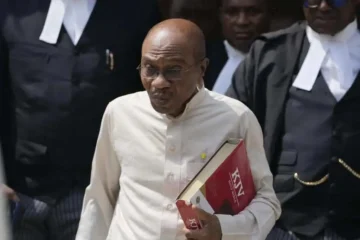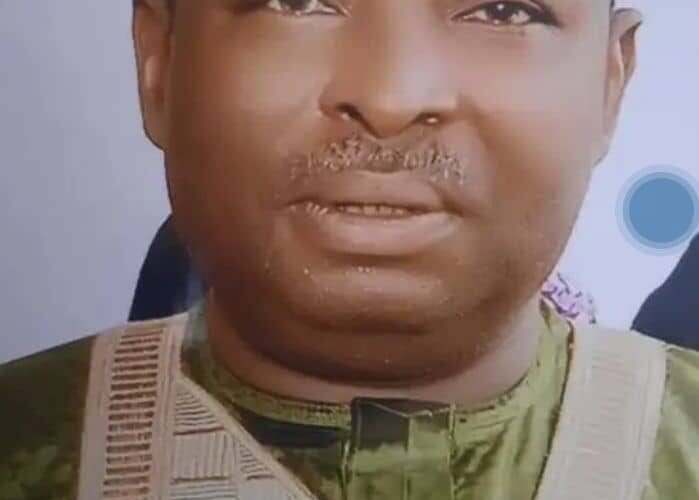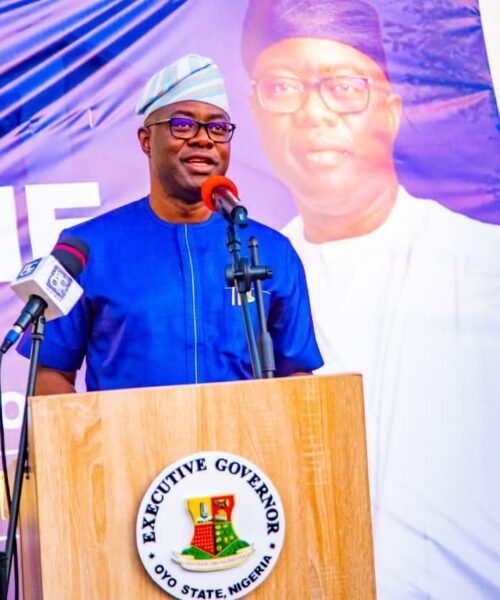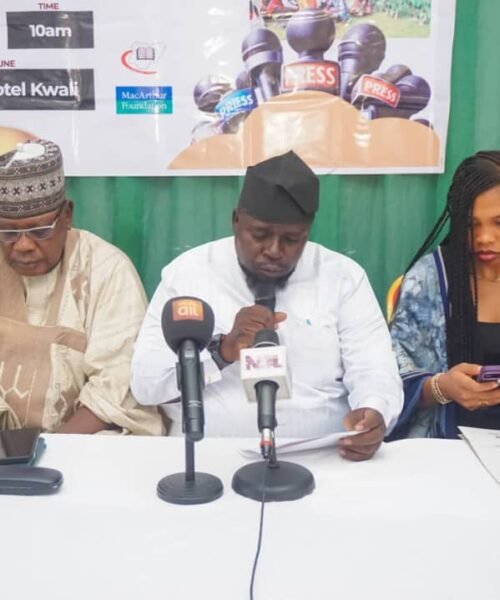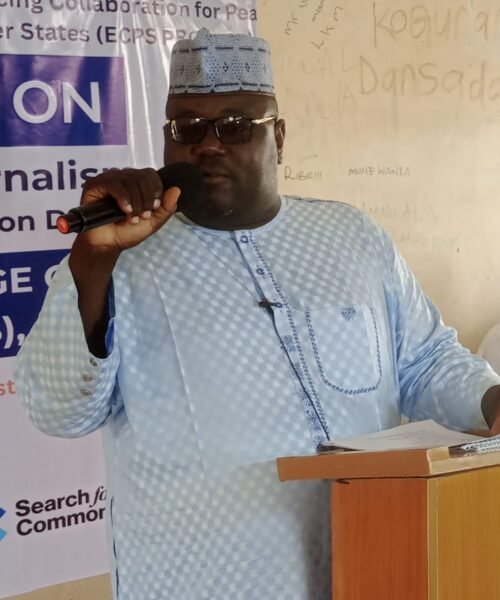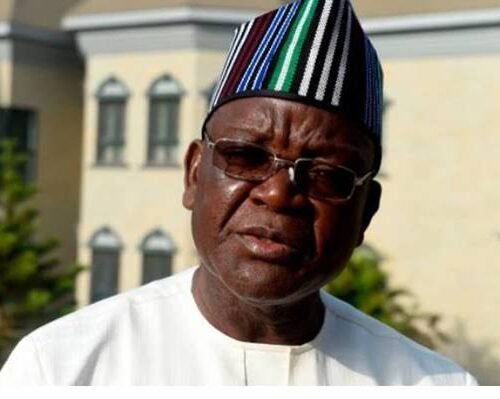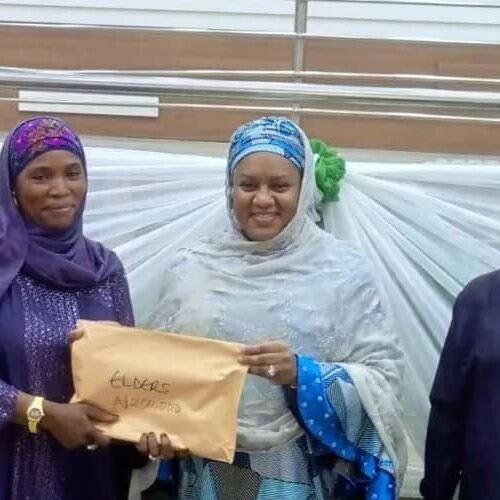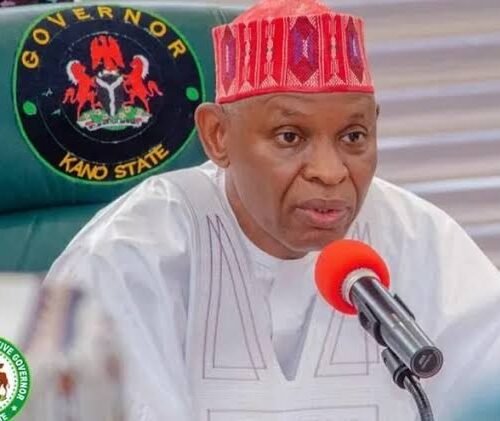By Okerafor Athanasius, Jalingo
The recent imposition of a 10% tariff on all Nigerian exports to the USA by President Donald Trump has sparked concerns among stakeholders in Nigeria, particularly in Taraba State, with a former public agency boardroom guru warning of serious consequences, if certain proactive measures are not taken by the powers-that-be.
Giving the warning in a press statement he signed and issued to newsmen in Jalingo, the Taraba State capital, North-East Nigeria, Mr. Iliya Ezekiel said the Federal and State Governments need to do the needful to get the economy on an even keel or suffer the outcomes of inaction or belated action.
Highlighting revenue generation as one of the tariff’s merits for the United States of America (USA), Ezekiel, who is the former Managing Director/ Chief Executive Officer (MD/CEO), Taraba Investment and Properties Limited, a government agency, explained that the move will generate additional revenue, which, according to him, may be used to support American industries and farmers.
Explaining that the tariff hike will also lead to protection of American domestic industries, the Taraba-born economist opined that the new tariff regime may protect American industries that compete with Nigerian exports, potentially saving jobs and promoting domestic production.
According to him, the tariff’s economic demerits to Nigeria include reduced Nigerian exports to the US because the 10% hike will increase the cost of Nigerian exports, making them less competitive and potentially leading to reduced export volumes for the country.
He added: “Loss of Revenue for Nigeria: Decreased export volumes will result in lower revenue for Nigeria, leading to increase in the country’s balance of payment challenges.
“Increased Cost of Living: The tariff may lead to higher prices for American consumers of Nigerian goods, including those of Nigerian descent, who rely on imported goods such as foodstuff and other consumer goods from Nigeria.”
On how the tariff will impact negatively on Nigerian businesses, Ezekiel stated that the tariff will disproportionately affect small and medium-sized enterprises (SMEs) in Nigeria, which rely heavily on exports to the USA.
The tariff’s impact on Nigeria’s balance of payment, he further explained, will spark widening trade deficit, especially as the reduced export volumes and lower revenue will widen such deficit, thus putting pressure on the country’s foreign exchange reserves.
Furthermore, Ezekiel listed other areas, stating: “Depreciation of the Naira: The increased demand for foreign exchange to pay for imports may lead to a depreciation of the naira, making imports more expensive and fueling inflation.”
He recommended that the Nigerian Government adopts a policy of diversifying the country’s export markets with a view to exploring alternative markets for the country’s products and so reduce dependence on US goods.
“Negotiate Trade Agreements: Engage in diplomatic efforts to negotiate trade agreements that promote Nigerian exports and reduce tariffs.
“Support Local Industries: Implement policies to support local industries, such as tax incentives, subsidies, and infrastructure development.
“Monitor and Adjust: Continuously monitor the impact of the tariff and adjust policies accordingly to mitigate its effects,” he suggested.
Turning to Taraba State and the feasible pathway to survive the possible economic consequences of the new tariff, the public boardroom guru advised the state government to implement certain anchors.
According to him, these include:
“Diversify Your Economy: Explore alternative sources of income, such as agriculture, tourism, and small-scale industries.
“Develop Local Markets: Focus on developing local markets for your products to reduce dependence on exports.
“Support Local Businesses: Encourage and support local businesses, which will help to stimulate economic growth and reduce the impact of the tariff.
“Seek Guidance: Reach out to local authorities, business associations, and experts for guidance on navigating the challenges posed by the tariff.”
Sounding a note of warning, the economist stated that the 10% tariff policy poses significant challenges for Nigeria and Taraba State.
“However, by diversifying export markets, negotiating trade agreements, supporting local industries, and developing local markets, we can mitigate the effects of this policy and promote economic growth and development,” he added.




